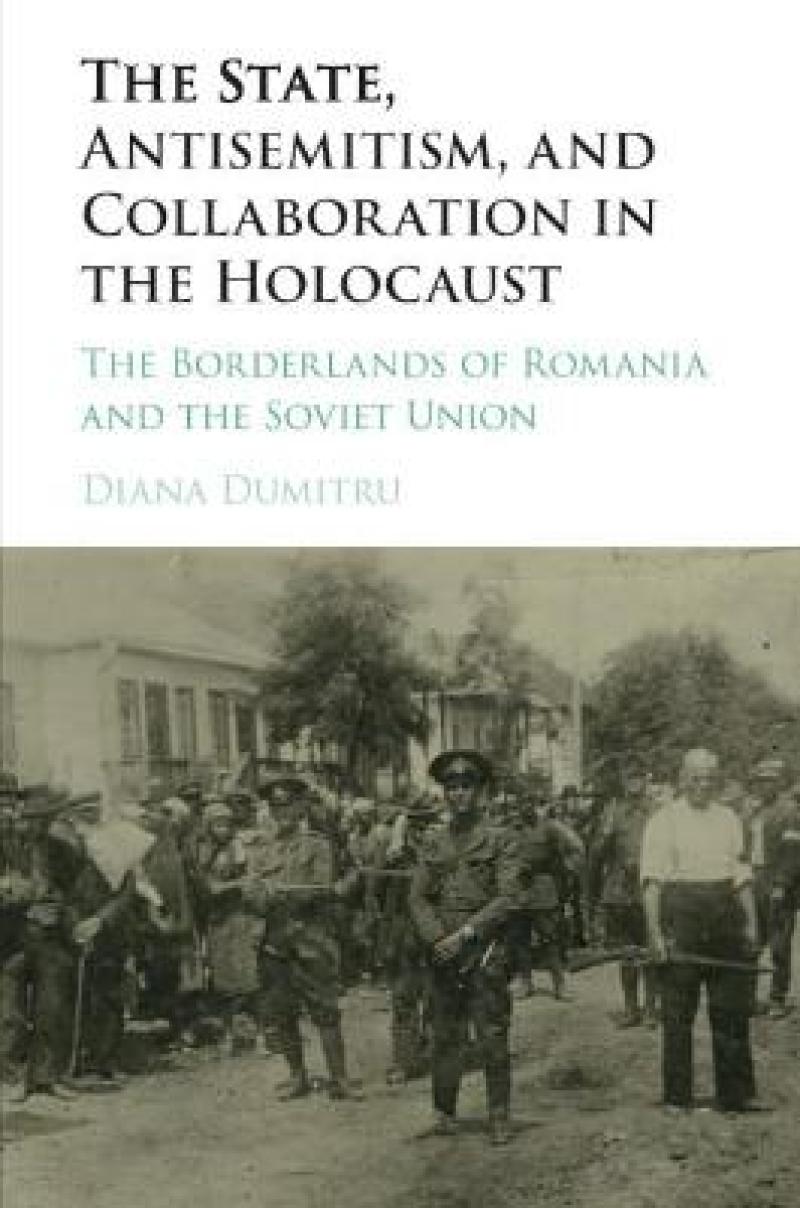'Can states school their citizens for genocide? Does valuing cultural diversity, by contrast, create a lasting buffer against state-organized violence? Diana Dumitru's thesis is provocative: that the Soviet ideology of 'friendship of peoples' attenuated popular antisemitism. Using the Romanian-Soviet borderland as a kind of natural experiment, Dumitru finds substantial differences between how neighboring populations in Romania and the USSR viewed their Jewish neighbors. Dumitru's work will open new debates about the power of political choice in determining the course of the Holocaust in different lands.' Charles King, author of Odessa: Genius and Death in a City of Dreams
'Diana Dumitriu's history shows the incredible power of the state's rhetoric and regulations to shape the attitudes and beliefs of its citizenry. This is a shocking and essential story for scholars of Central and Eastern Europe.' Kate Brown, author of A Biography of No Place: From Ethnic Borderland to Soviet Heartland
'The Holocaust in Bessarabia and Transnistria is much less familiar than that in Poland and the Baltic states, while by many accounts it was just as bestial. Diana Dumitru's research explores an even less familiar reality: that Stalin's totalitarianism fostered a climate that was relatively benevolent toward the Jews by comparison with the hostility fostered by the more traditional authoritarianism of Romania. In bringing to the surface this apparent irony, she demonstrates how the Holocaust remains an inexhaustible field of study, which continues to shed a revealing and troubling light on our present.' Robert D. Kaplan, author of Balkan Ghosts: A Journey through History
'Diana Dumitru's important contribution to the burgeoning study of the Holocaust in the East demonstrates convincingly that Transnistrian Moldova, under Soviet rule from 1918 to 1940, witnessed far less collaboration than did Bessarabian Moldova, under Romanian rule. Her argument that Soviet internationalism explains this difference is an important challenge to both Holocaust studies and Soviet history.' Terry Martin, author of Affirmative Action Empire: Nations and Nationalism in the Soviet Union, 1923‒1939
'A fascinating study of the ordinary civilians who chose to victimize Jews or to help them during the perilous times of Nazi occupation. It represents a major contribution to this understudied topic outside the realm of direct Nazi rule. The entire book would fit greatly into Holocaust studies and East European history classes, and should not be omitted from the reading list of scholars of Romanian and Ukrainian history.' Ștefan Cristian Ionescu, H-Nationalism
'This admirable work of scholarship is notable for its substantiation of a view that in Soviet-ruled areas of Eastern Europe during the interwar period, the civilian population was less prone to antisemitism than in territories where such racist attitudes festered and were encouraged by state-sponsored policies. Based on an investigation of an impressive range of multilingual archival sources, memoir literature, and interviews with survivors and bystanders of the Holocaust, this volume provides a comparative case study of Jewish-Gentile relations in two neighboring areas - Bessarabia and Transnistria - corresponding roughly to the territories of present-day Moldova and southwest Ukraine, both of which were under Romanian rule during the period 1941–44.' Dennis Deletant, The Journal of Modern History
'Brilliantly written, with a masterful use of sources and secondary literature, Diana Dumitru's book will prove mandatory reading for every scholar interested in the perpetration of the Holocaust in the East. An impressive and well-informed monograph with a sophisticated theoretical framework and a consistent and sharp argumentation, it would be useful reading for graduate and undergraduate classes in Holocaust studies and Eastern European history. It also suggests new avenues for subsequent researchers.' Ionut Biliuta, Journal of Holocaust and Genocide Studies
'Brilliantly written, with a masterful use of sources and secondary literature, Diana Dumitru's book will prove mandatory reading for every scholar interested in the perpetration of the Holocaust in the East. An impressive and well-informed monograph with a sophisticated theoretical framework and a consistent and sharp argumentation, it would be useful reading for graduate and undergraduate classes in Holocaust studies and Eastern European history. It also suggests new avenues for subsequent researchers.' Ionut Biliuta, Holocaust and Genocide Studies

